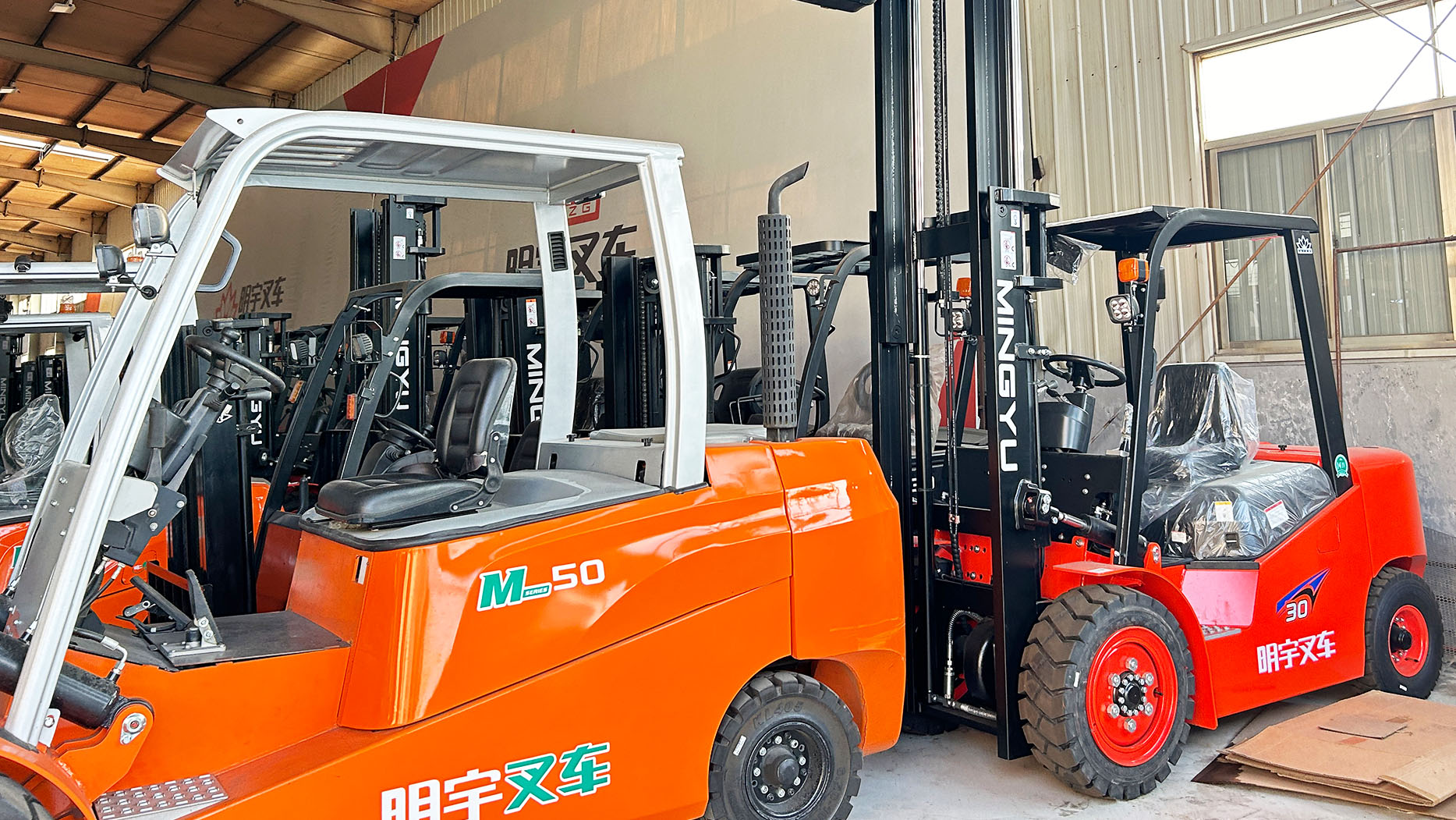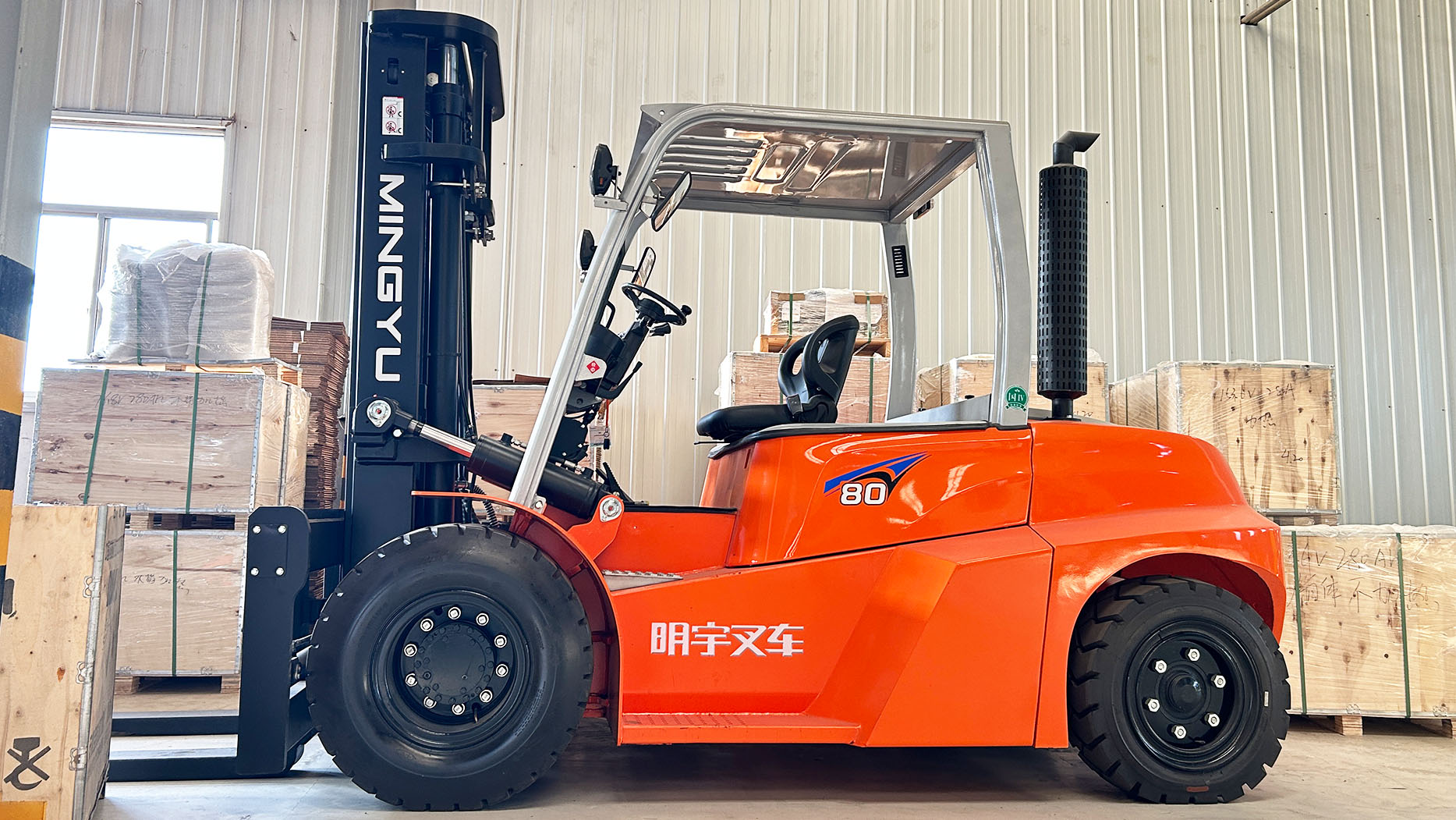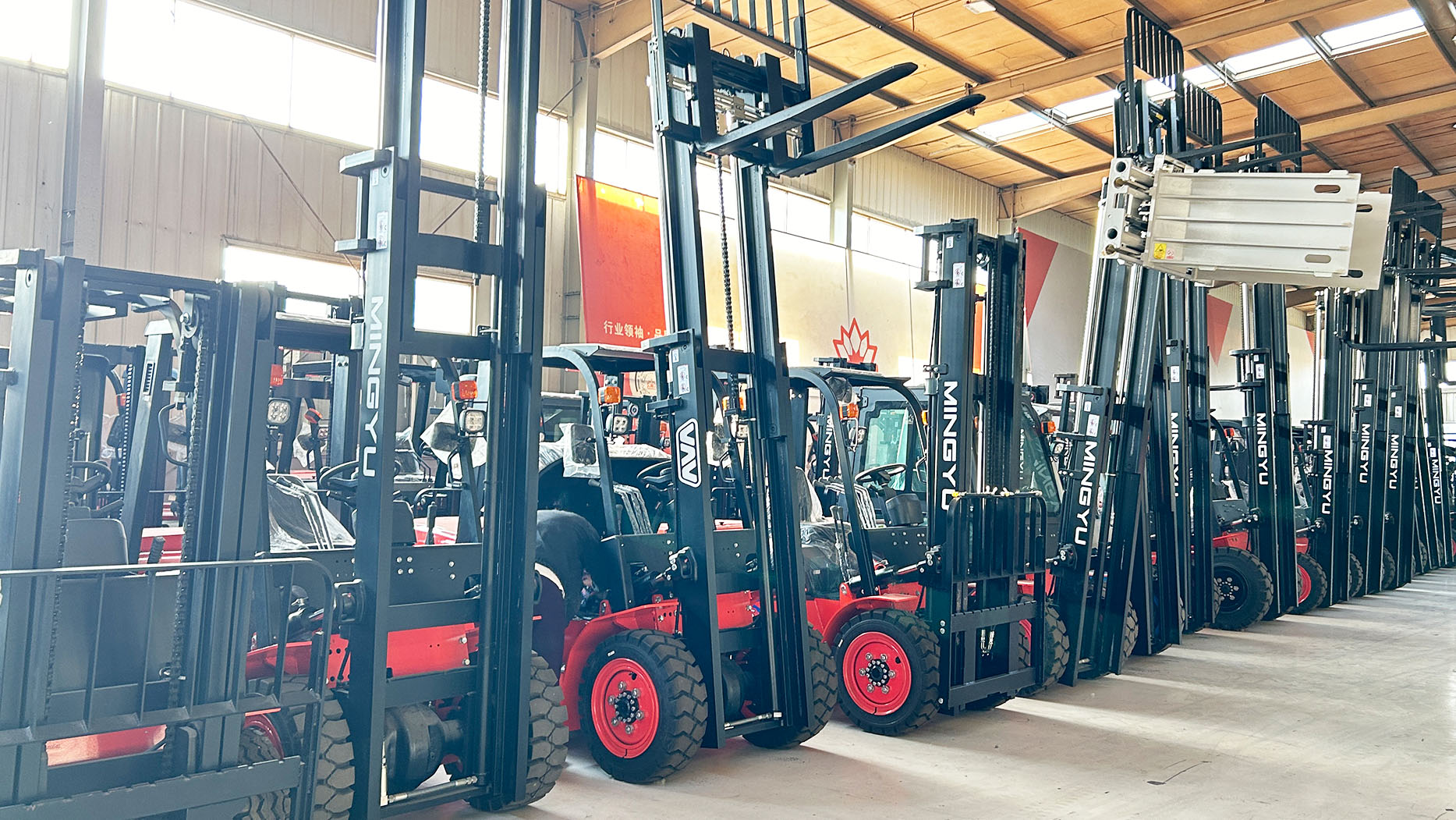Operating a forklift safely and efficiently is not just a matter of common sense; it's a legally mandated requirement in the United States under the Occupational Safety and Health Administration (OSHA) regulations (29 CFR 1910.178). As a result, a robust network of forklift training providers exists to equip individuals with the necessary knowledge and practical skills. Finding the right training option near you, however, can feel like navigating a crowded warehouse. This technical article will explore the various avenues for obtaining forklift certification training in your vicinity, outlining the different types of programs available and the key considerations for making the best choice.
The Regulatory Landscape: OSHA's Mandate for Forklift Training
Before diving into the training options, it's crucial to understand OSHA's requirements. Employers are responsible for ensuring that all forklift operators are competent to operate a powered industrial truck safely, as demonstrated by the successful completion of training and evaluation. 1 This training must consist of:
Formal Instruction: Covering the principles of safe forklift operation, the types of vehicles in use, workplace-related topics, and the requirements of the OSHA standard. This can be delivered through lectures, videos, written materials, or online courses.
Practical Training: Hands-on operation of the specific types of forklifts the employee will be using in the workplace, conducted in a safe environment under the supervision of a qualified trainer.
Evaluation: An assessment of the operator's competence in operating the equipment safely, performed in the workplace.
Crucially, OSHA mandates that forklift operator certifications are specific to the type of forklift being operated (e.g., sit-down counterbalance, reach truck, order picker) and the workplace conditions. General certifications obtained online may fulfill the formal instruction requirement but must be supplemented by practical training and evaluation specific to the employer's equipment and work environment. Furthermore, refresher training and evaluations are required at least every three years, or when an operator is observed operating unsafely, involved in an accident, or assigned to operate a different type of truck.

Exploring Local Training Avenues: Where to Find Forklift Certification Near You
Given OSHA's requirements, the most comprehensive and compliant forklift training options are typically found through providers that can offer both formal instruction and practical, hands-on training tailored to your (or your employees') needs. Here are the primary avenues to explore for forklift training near you:
1. Independent Safety Training Companies:
Many specialized safety training companies focus on providing OSHA-compliant training for a variety of industrial equipment, including forklifts.
Pros: Often offer flexible scheduling (on-site training at your facility or at their training center), experienced and certified instructors, and customized training programs to meet specific industry or workplace requirements. They are well-versed in OSHA regulations and can provide comprehensive training solutions.
Cons: Costs might vary depending on the number of trainees and the level of customization. You'll need to verify their OSHA compliance and the qualifications of their instructors.
2. Community Colleges and Vocational Schools:
Some local educational institutions offer forklift operator training programs as part of their vocational or continuing education offerings.
Pros: Can provide a structured learning environment with both classroom instruction and practical exercises. May offer more affordable rates compared to specialized training companies.
Cons: Course schedules might be less flexible, and the training might not be as tailored to specific workplace environments. You'll need to ensure their program includes hands-on training on the types of forklifts relevant to your needs and that they can assist with the workplace-specific evaluation component.
3. Forklift Dealers and Equipment Suppliers:
Many forklift dealerships and rental companies offer operator training programs as a value-added service.
Pros: Their instructors are often highly knowledgeable about the specific makes and models of forklifts they sell and service. Training can be tailored to the equipment you are using or plan to use. They can often provide on-site training.
Cons: Their primary focus might be on their specific brand of equipment, and their training might be geared towards new equipment operation rather than addressing specific workplace hazards in detail.
 5. Union Training Programs:
5. Union Training Programs:
If you or your employees are part of a union, the union may offer forklift training programs through their training centers.
Pros: Often provide high-quality, comprehensive training that meets industry standards and OSHA requirements. Can be a cost-effective option for union members.
Cons: Availability might be limited to union members.
Finding Training Options Near You: Practical Steps
To locate forklift training options in your area, consider the following steps:
Online Search: Use search engines like Google, Bing, or Yelp with specific keywords such as:
"Forklift training near me"
"Forklift certification [your city/county]"
"OSHA forklift training [your state]"
"Industrial equipment training [your area]"
"Forklift operator certification"
"Heavy equipment training schools"
Local Business Directories: Explore online directories or even physical phone books for safety training companies, vocational schools, and forklift dealers in your vicinity.
Contact Local OSHA Offices or Consultation Programs: Your local OSHA office or state-run OSHA consultation program might be able to provide a list of reputable training providers in your area.
Industry Associations: If you belong to a specific industry association (e.g., warehousing, construction), they may have partnerships with training providers or be able to recommend local options.
Networking: Ask other businesses in your industry for recommendations on forklift training providers they have used.
Evaluating Training Providers: Key Questions to Ask
Once you have identified potential training providers, it's essential to evaluate them to ensure they meet your needs and OSHA requirements:
OSHA Compliance: Does their training program meet all the requirements outlined in OSHA 29 CFR 1910.178?
Instructor Qualifications: Are their instructors experienced, certified, and knowledgeable about forklift operation and safety standards?
Curriculum Content: Does the curriculum cover all the necessary topics for formal instruction, including the specific types of forklifts you need training for and workplace safety considerations?
Hands-on Training: Do they offer practical, hands-on training on the relevant types of forklifts? Is the training conducted in a safe and controlled environment? What is the student-to-instructor ratio during practical training?
Evaluation Process: Do they conduct thorough evaluations of operator competency? Do they provide documentation of training and evaluation?
Customization Options: Can they tailor the training to your specific workplace conditions, hazards, and equipment?
Training Location and Schedule: Do they offer training at your site or at their facility? Are their schedules flexible enough to meet your needs?
Cost and Payment Options: What is the total cost of the training, including any materials or fees? What payment options are available?
Refresher Training: Do they offer refresher training courses to meet OSHA's triennial requirement?
Record Keeping: What records of training do they provide?

The Importance of Workplace-Specific Training and Evaluation
Remember that even if an employee completes a comprehensive formal instruction and practical training program off-site, the employer is still responsible for providing workplace-specific training and conducting an evaluation in the actual work environment. This on-site training should cover:
Site-specific hazards (e.g., pedestrian traffic, narrow aisles, loading docks).
Operating procedures unique to the workplace.
The specific forklift models used at the facility.
Any attachments the operator will be using.
Conclusion: Investing in Competence and Compliance
Finding the right forklift training options near you is a critical investment in the safety and efficiency of your operations. By understanding OSHA's requirements, exploring the various training avenues available, and carefully evaluating potential providers, you can ensure that your forklift operators are competent, certified, and able to operate equipment safely. Remember that a comprehensive training program includes both formal instruction and practical, hands-on training, culminating in a workplace-specific evaluation. Take the time to find a reputable provider that meets all these criteria, and you'll be well on your way to a safer and more productive work environment.
Post time:May.09.2025
